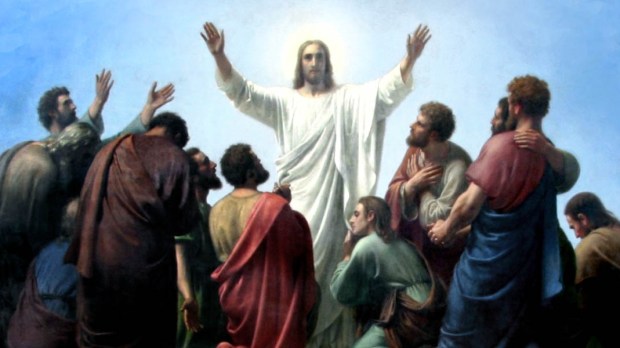There is one thing that Jesus always asks us to do, but practically begs us to do during Easter.
He doesn’t say to celebrate his Resurrection or remember his Resurrection or depict his Resurrection — though I’m sure he appreciates all three. He says to tell people about his Resurrection.
Peter understood what Jesus is asking.
At Masses from Easter Monday, when Jesus tells Mary Magdalene, “Do not be afraid. Go tell my brothers,” to Easter Saturday, when he tells the apostles “Go into the whole world and proclaim the Gospel to every creature,” the Lord makes his desire clear.
Meanwhile, the Church pairs each day’s Gospel with an example from Acts of the Apostles of Peter proclaiming the Resurrection in several different places, in several different ways, but always fearlessly.
Imagine what would happen if we were all that fearless.
Jesus’ original small band of apostles were so convinced by the Resurrection that they couldn’t help but tell others.
The message went far and wide, and started a worldwide movement that outlasted the Roman empire, the Sanhedrin, and the Pharisees who plotted against Jesus.
Their message provided the faith in God’s order necessary to establish the scientific method and the concern for others necessary to apply it to medical breakthroughs. Telling people about the Resurrection led to the establishment of networks of hospitals, orphanages and the largest charitable organization the world has ever known.
The message of Christ’s Resurrection led to an appreciation for the body that revolutionized art from Giotto to film, and can continue to do so today. Telling Jesus’ story changed literature from Augustine to Tolkien and can inspire great storytelling now.
Defining the Church as the body of the risen Christ inspired great architecture that flowered in the Notre Dame cathedral and can inspire architects again today.
But if we say nothing, no one will know of the freeing possibilities Jesus gives them.
This is one lesson that is taught by the phenomenon of the Unplanned movie.
The film depicts some of the everyday horrors of the abortion industry: The way clinics talk vulnerable women into believing that abortion is their best choice, the way the abortion pill is sold versus the way it works, and the reality of how children are torn apart in the womb.
Many people watched the movie and asked, “How come nobody ever told us that this is what it is like?”
The answer? While some people wanted to hide the truth from them, others just felt uncomfortable about it, and so stayed silent.
Think of all the pain that could be avoided if we weren’t so timid.
The message of the Resurrection frees people from so much.
Our society is failing to give people a sense of purpose when more than 130 people each day die after overdosing on opioids. How many would have benefited from hearing from a credible witness that God himself came to earth, in the flesh, and then rose from the dead to prove his love for them?
Our society is losing the sense that life has meaning when suicide is the second most common cause of death for 10- to 34-year-olds and the fourth most common cause of death for 35- to 54-year-olds. How many would have found hope in knowing that Jesus promises their own Resurrection one day, too?
“Loneliness and social isolation may represent a greater public health hazard than obesity, and their impact has been growing and will continue to grow,” says a recent study cited by Tim Carney in his book Alienated America.
Where are these phenomena less prevalent? In places with strong churches.
Do as Jesus asked. Create your own Easter message.
Tell people that belief in the Resurrection is reasonable.
Tell them how you have personally experienced Christ, or start with these inspiring stories.
Tell them how faith improves people.
Tell them the benefits of Mass and confession.
But do tell someone something. Jesus himself asked you to.

